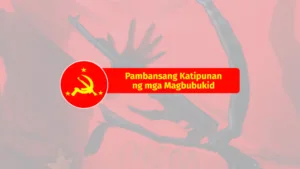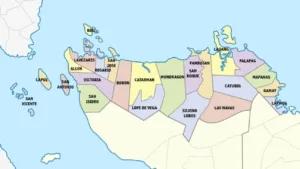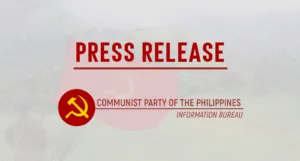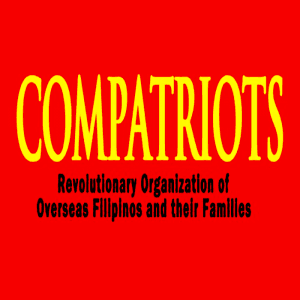Statement of the Pambansang Katipunan ng mga Magbubukid (PKM)
National Security Adviser Eduardo Año erroneously claims in his recent statements that the primary obstacle for the resumption of peace talks is the National Democratic Front of the Philippines (NDFP). This narrative he is peddling is not only misleading but dangerously diverts attention from the true impediments for the resumption of peace negotiations.
The primary obstacle to the resumption of peace talks is not the NDFP, but rather the hawkish elements within the reactionary government who persistently oppose any form of meaningful and substantive dialogue. These individuals, including Año himself, continue to sabotage the peace process by conveniently dismissing the essential issues at the heart of the conflict, particularly the lack of genuine land reform and national industrialization – key elements that should be tackled in the peace negotiations.
For decades, the NDFP has championed the free distribution of land as the cornerstone of just and lasting peace. The absence of substantial progress on this front is a significant reason why the conflict rages on in the countryside and why more and more Filipino peasants are taking up arms. It is the refusal of government hardliners like Año to engage with this critical issue that perpetuates the suffering of the Filipino people. The rural poor continue to be denied their right to land, while the elite – who these officials protect – tighten their grip on the nation’s resources. This is the real reason peace talks have stalled.
If the Marcos Jr. administration is really serious about achieving just and lasting peace, it must prioritize addressing the socio-economic roots at the core of the armed conflict, particularly the widespread landlessness of the peasant class. In this context, the failure of the peace negotiations rests squarely on the shoulders of those in power who refuse to address the root causes of the armed conflict.













